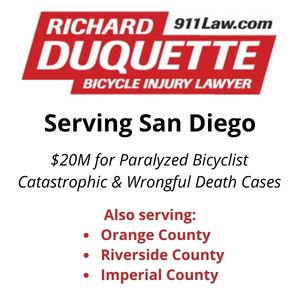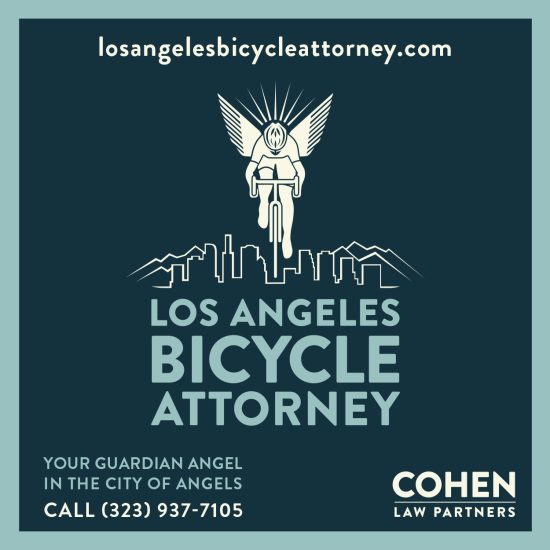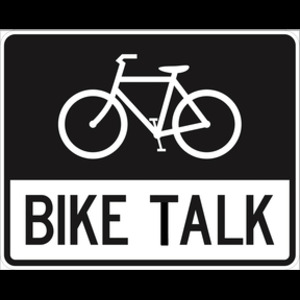Now that I’ve caught up on sleep after a busy bike week — I mean seriously, why can’t people bike to work at a more reasonable hour, like maybe noon? — let’s catch on the news before moving on to this week’s events.
………
AG2R La Mondiale rider Sylvain Georges leads from the first mile to win a dramatic stage 6 of the Amgen Tour of California; Dave Zabriskie holds onto the leader’s jersey he won on Thurday in the Bakersfield time trial. And Kristen Armstrong wins once again in the women’s annual token appearance in the Tour of California.
On the other side of the Atlantic, Mark Cavendish wins his third stage of this year’s Giro, despite a couple of crashes the first week, while Joaquim Rodriguez keeps the leader’s jersey. Liquigas-Cannondale’s Damiano Caruso hopes to win best young rider; I’d vote Taylor Phinney for gutsiest young rider after cycling on this for the past week.
………
Big news on the local bike lane front, as B.I.K.A.S says the new bike lanes on NELA’s Via Marisol probably won’t get a lot of use. Three new bike lanes prove there’s cycling life south of the 10 Freeway. LADOT plans a full interconnected bikeway network in Downtown L.A. within the next 13 months or so; I’ll be glad when I don’t have to dodge cabs and buses on 7th street east of Figueroa anymore.
………
LACBC offers advice on how to lock your bike. A non-biking reporter rides to work in Glendale. One in ten California drivers are on their cell phones at any given time. Calbike asks you to contact your state Senator to ask for a safe passing distance. Bike thieves hit Coronado. Four decades of manning a Bike to Work station in Palo Alto. A San Francisco attorney with two previous speeding convictions is arrested in the hit-and-run death of a cyclist in Dublin CA. New separated bike lanes in are bad for everyone according to a San Francisco writer. The father of a Napa City council candidate is killed riding back from a half century when a 20-year old driver drifts off the road. A bicyclist is killed after falling into a Fresno canal.
Five things every mayor should know before starting a bike share program; link courtesy of Alan Thompson. Science is still trying to figure out how we balance on a bike. Save up to $9,000 a year by balancing one on your way to work. Now you can get that stainless steel DeLorean you always wanted, just with two fewer wheels. Are bikes the next great technology platform? Albuquerque cyclists will soon get a bike/pedestrian bridge over I-25. A Denver cyclist slams into a police car after allegedly running a stop sign. The women’s pro tour hits Idaho next week; maybe some day they’ll get the attention they deserve, right Amgen? L.A. expat Amanda Lipsey says bikes equal smiles, and Missoula ain’t L.A. A Tulsa bike thief pulls an endo attempting his getaway. An Indiana driver slams on his breaks in front of a cyclist; the rider responds by pulling out a gun and shooting him. Chattanooga area police refuse to enforce Tennessee’s three-foot passing law unless the driver actually makes contact with the rider; I guess that’s one way to be sure the distance was less than three feet. Joe Jonas loses his bike to thieves. Questions surround locations for New York’s new bike share. It’s as easy as learning to ride a bike — again. A Florida driver won’t face charges after killing a cyclist with morphine, muscle relaxant and a tranquilizer in her system.
Vancouver cyclists have to deal with close calls and narrow streets. Seven things you should give up to be a happy cyclist; can’t say I’d argue with any of it, even if I often fail to practice them myself. UK police threaten to prosecute a five-year old for riding his bike on a promenade; no, really. A professional Brit pollster dismantles a recent highly misleading anti-bike survey.
Finally, if Norman can ride a bike, so can you. Even if he does have twice as many legs and a lot more hair. And even supposedly sensitive women bloggers take it out on cyclists.
………
Bike Talk airs every Saturday at 10 am; listen to it live or download the podcast from KPFK.
Bike Long Beach hosts Bike Saturdays every weekend; ride your bike to participating local shops and business throughout the city to get special offers and discounts.
DTLA’s popular Downtown L.A. Bicycles hosts the Grand Opening of their new Santa Monica location at 7th and Wilshire in Santa Monica starting at noon on Saturday, May 19th. Events include a custom Yoga routine designed for biking, BMX bike demonstrations, an interactive safety scavenger hunt, raffles and much more.
Pasadena wraps up Bike Week with the free All City Ride and Bike Week Pedal Party, from 6:30 pm to 11 pm on Saturday the 19th. The ride starts and ends at Paseo Colorado, 280 East Colorado Blvd.
Cap off Bike Week with a Bike Exhibition hosted by the Santa Monica Spoke at the annual Santa Monica Festival on Saturday, May 19th from 11 am to 6 pm at Clover Park, 2600 Ocean Park Blvd, offering a full day of music, dance, visual arts, food, information and shopping. Admission is free, and there will be a bike valet.
The Culver City Bicycle Coalition is looking for volunteers for the city’s bike count on Saturday, May 19th and Wednesday, May 23rd.
The Amgen Tour of California concludes with a penultimate Ontario to Mt. Baldy stage on Saturday, May 19th, and the final stage from Beverly Hills to L.A. Live on Sunday, May 20th, with the race starting at 10:10 am and an expected finish between 11:40 and noon.
Speaking of the Tour of California, you’re invited to ride the Downtown leg of the final stage with the Nissan Ride Before the Pros on Sunday the 20th. Riders of all ability levels can ride the 5-mile closed circuit from 8 am to 9:30 am starting at Staples Center. Think of it as a mini-CicLAvia; free registration required.
Also on the Sunday the 20th, the younger set can join in the inaugural Kidical Mass Bixby Knolls bike ride, from 1 to 3 pm beginning and ending at Los Cerritos Park in Long Beach. The four mile ride will be led by Long Beach Bike Ambassador and Olympic cyclist Tony Cruz, and feature complimentary ice cream, music, free tune ups, yoga demonstrations and a blessing of the bicycles.
Anyone who rides PCH — or would like to — is invited attend a meeting discussing design of the Pacific Coast Bike Route Improvements Project between Busch Drive and the western Malibu city limit. The meeting is scheduled for 6 pm to 8 pm on Wednesday, May 23rd in the Multi-Purpose Room at Malibu City Hall, 23825 Stuart Ranch Road. Note that the meeting has been moved from Saturday the 19th; the Saturday meeting has been cancelled.
San Diego cyclists are invited to Ride to Vote on Wednesday, May 23rd to advocate for safer bicycling facilities in the city. The all ages ride will assemble at 5 pm at the fountain in Balboa Park for an easy 11-mile ride. While the organizers strongly support independent candidate Nathan Fletcher for mayor of San Diego, they want to send a message that they will strongly support any candidate, regardless of party, who genuinely embraces a vision of a people-friendly San Diego.
Los Angeles cyclists enter the political realm when the Los Angeles County Bicycle Coalition’s new Civic Engagement Committee meets for the first time promptly at 6:45 pm (note the new start time) on Tuesday, May 29th on the Mezzanine level at LACBC headquarters, 634 South Spring Street in Downtown L.A. Help us get us work to get candidates for mayor and city council in Los Angeles and other area cities on the record for their stands on bicycling issues to ensure the election of more bike-friendly political leaders.
The Palms Neighborhood Council will host their 19th Annual Bike Rodeo on Saturday, June 2nd from 10 am to 2 pm at Palms Elementary School, 3520 Motor Ave. The event is free for Palms residents and children attending Palms area schools.
The Antelope Valley’s High Desert Cyclists hosts a series of monthly Brunch Rides starting at Marie Kerr Park on 30th Street West in Palmdale on the second Saturday of each month. The comfortably paced 15 to 20 mile rides will visit a local restaurant or coffee shop for brunch before returning to the starting point; organizers promise no rider will be left behind. The next ride is scheduled for Saturday, June 9th at 7:30 am, with successive rides scheduled for July 14th, August 11th, September 8th and October 13th.
L.A.’s favorite fundraising bike ride rolls out on Sunday, June 10th with the 12th Annual L.A. River Ride; this one just keeps getting bigger and better every year. Six different rides, from an easy family ride to a fast, flat century. Funds go to support the LACBC in building a better, more bikeable L.A. County; save $10 if you register by May 15th.
Recover from The L.A. River Ride with a laid-back bike, brunch and beer ride the following Saturday, June 16th. The first annual B3 charity bike ride will raise funds for the Pablove Foundation with beer and food specials, while making a loop between Golden Road Brewing, Tony’s Darts Away and Mohawk Bend.
Sunday, July 1st, Shuntain Thomas, the Real Rydaz and We Are Responsible People (WARP) will host a ride through the streets of South Los Angeles to raise attention to the problem of childhood obesity and streets as recreational space. The ride starts at 10 am at Exposition Park, and ends at a street festival at 86th Street and Vermont Avenue.
The 4th Annual California Tour de Dreams 2012 will take place August 9th through 19th as cyclists will ride 540 miles from UC Berkeley to UCLA to educate communities about the passage of the California Dream Act and advocate for passage of the Federal Dream Act; register online by May 31st.
Bikes are normally banned from the famed San Diego – Coronado Bay Bridge, but you can ride it on Sunday, August 26th, during the 5th Annual Bike the Bay, to benefit the San Diego County Bicycle Coalition. Get an early registration discount through April 30th.
Early registration has opened for the national Pro Walk/Pro Bike® conference to be held September 10th through 13th in Long Beach. The 17th annual conference is sponsored by the National Center for Bicycling and Walking, and Project for Public Spaces.
This year’s Tour de Fat will take place on Saturday, September 15th at Los Angeles State Historic Park — and this time, it’s not scheduled on the Jewish high holidays, so everyone can attend.
Mark your calendar for the next CicLAvia from 10 am to 3 pm on October 14th; more details to follow.
Like this:
Like Loading...






